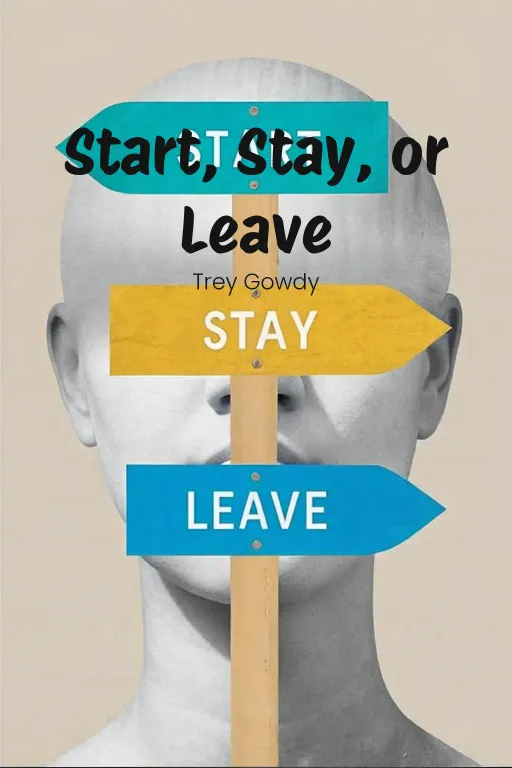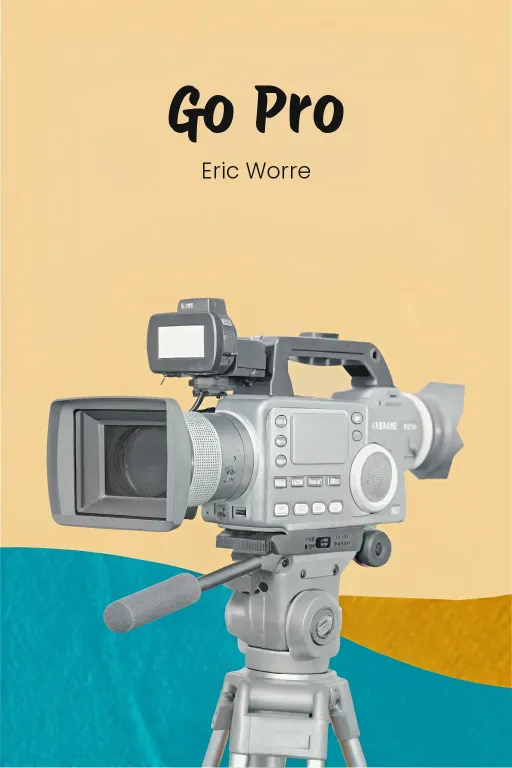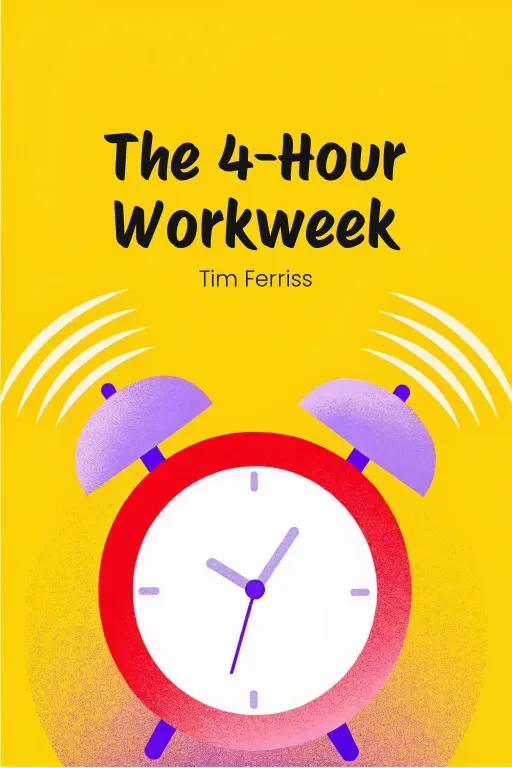
Go Pro: Master Your Network Game
Podcast by Next Level Playbook with Roger and Patricia
7 Steps to Becoming a Network Marketing Professional
Go Pro: Master Your Network Game
Part 1
Roger: Hey everyone, welcome back to the show! Patricia, let me ask you something – when you see someone involved in network marketing, what's your first thought? Do you ever wonder, "Is this a real opportunity, or just another one of those overly optimistic sales pitches?" Patricia: Roger, you're hitting right at the heart of the matter today. I mean, isn’t that “everyone’s” initial reaction? If it seems so questionable, why are so many seemingly normal people drawn to it? Roger: Right? That's exactly what we're diving into. And that's where Eric Worre’s book, Go Pro: 7 Steps to Becoming a Network Marketing Professional comes in. It cuts through all the fluff. It's not about instant riches, but about treating network marketing as a legitimate profession. Worre, with 25 years in the industry, provides a structured, step-by-step approach—replacing those "fingers-crossed" tactics with strategies that actually work. Patricia: Professionalism and network marketing – those words don't always seem to go together. So, what's Worre's master plan here, exactly? Roger: Well, Worre breaks it down really clearly. Today, we're focusing on three key areas from the book. First, the professional mindset – why it’s absolutely crucial for turning aspirations into tangible results. Then, the seven core skills – practical skills that help with connecting, presenting your product, following up, and so on. Finally, the ultimate rewards – the freedom, the relationships, and the sense of purpose that come with committing to this path. Patricia: Okay, so it’s kind of like–like building a house. The mindset is the architectural plan, the skills are the actual construction, and the rewards are, you know, the beautiful, finished home you’ve always dreamed of. Roger: Precisely, Patricia! So, let's jump in and explore how to build that house, brick by brick.
The Professional Mindset
Part 2
Roger: Okay, Patricia, so let’s dive into this foundation Eric Worre talks about. You mentioned the professional mindset as being key which is totally true, but like, what does it “really” mean? I mean, of course professionals are committed, but how do you nail that down in our field? Patricia: Yeah, good point. I mean, sure, we know professionals are dedicated, but what does that actually look like here? Roger: Well, Worre breaks people down into three types: Posers, Amateurs, and Professionals, right? Each one shows a different level of commitment and a different understanding of what it takes to be successful. Basically, the professional mindset clicks in when you stop just hoping for the best and start seeing network marketing as something you can actually “learn” and master. Patricia: Okay, so it's about ditching the "fingers crossed" approach and getting down to business. Let's break down these categories. First, Posers, what's their deal? I'm guessing we don’t want to be them! Roger: Oh, absolutely not! Posers treat network marketing like it's just a fun little hobby, or even worse, a lottery ticket. They get in thinking that success is going to magically appear, you know? Like it'll just fall into their laps. They usually rely on things outside of themselves, like a trending product or riding on someone else’s connections. Actually, Eric Worre admits he started out as a Poser himself, he thought he could coast on his dad's connections. Patricia: Right, so Posers are like someone who throws seeds in the ground and then just…waits. Never waters, never weeds, just expects a harvest. So what happens when things get tough, when there's a drought? Roger: Exactly! Any success they have is going to be short-lived, if they even get any at all. Posers don’t take any responsibility. The second they hit a bump in the road, like the market changes or they get a "no," they're out. No grit, no vision. Worre definitely learned that the hard way – that kind of casual approach just isn't sustainable. Patricia: Okay, so Posers equal... failure to launch. Got it. Now, Amateurs. Are they much better, or just... slightly less doomed? Roger: Well, they're definitely more engaged, but they still haven't fully committed. Amateurs are kind of always chasing the next shiny object, looking for shortcuts. They think that success is about luck, about being in the right place at the right time, or finding that one "golden goose" who’s going to carry them to the top. Worre says he was like this too, jumping from tactic to tactic, hoping to find some magic bullet. Patricia: Ah, I know these people. Amateurs are the ones who sign up for every webinar, buy all the courses, talk a big game about their dream business, but never actually stick with one thing long enough to get good at it. Roger: That's such a good way to put it! Amateurs, they chase those surface-level things but don’t actually invest in building real skills or relationships, you know? They might make “huge” prospect lists or spam social media, but there's no real strategy behind it. And inevitably, that leads to burnout and frustration because they don't see the results they want. Patricia: Right, so they’re busy, but not effective. Which I assume is where the Professionals come in? Roger: Exactly! Professionals are the gold standard. They treat network marketing like a “real” career, like any other respected profession. They see themselves as apprentices, constantly working to master their craft. They treat every interaction as a chance to learn and grow, and they take responsibility for everything. No hoping for luck, no desperate search for shortcuts. Patricia: Okay, but let me push back a bit. How do you actually “become” a Professional? It sounds great, but what made Worre flip that switch? Roger: That’s a great question! For Worre, it was attending a company convention. He saw all these top earners and realized it wasn't luck, it was skill. They were confident, they knew exactly what they were doing, they'd mastered things like presenting and team building. And that's when it clicked for him: success in network marketing is just like any other field—you have to learn, practice, and put in the work consistently. Patricia: Interesting. So it wasn't about being naturally charismatic or lucky, it was a conscious decision. And that applies to everyone? Even if you're not a natural salesperson or an extrovert? Roger: Yes, absolutely! And that's what’s so great about the Professional mindset! You don't have to be flashy or super outgoing. It's about showing up regularly, doing the work, and honing your skills based on your strengths. Anyone can do it if they commit. Patricia: Okay, so a Poser hopes for a miracle, an Amateur wastes energy on quick fixes, and a Professional focuses on consistent, long-term skill development. But switching from one to another can't be instant. Where do you even start? Roger: It starts with self-awareness, Patricia. Ask yourself: Am I truly committed, or am I just hoping things will magically fall into place? The second you take responsibility for your results, whether they're good or bad, you're moving towards becoming a Professional. Then, you set a long-term goal and commit to learning. You have to realize this is a “marathon”, not a sprint. Patricia: And that self-awareness leads to action, right? No epiphany by just staring into a mirror? Roger: Definitely. Worre stresses doing over just thinking. Watch industry leaders, attend events, practice your skills, and never stop learning. And he says accountability is key – owning your progress keeps you moving forward. Patricia: Okay, Roger, I follow the logic. But what's the real payoff? Why go through the hassle of becoming a Professional instead of just coasting as an Amateur? Roger: Transformation, Patricia. Plain and simple. It's not just about the money, although Professionals do see the financial rewards, like freedom and flexibility. It's about personal growth and fulfillment. Worre talks about how changing his approach deepened his relationships, boosted his confidence, and gave him a sense of purpose. He felt more in control of his future with every small step he took. Imagine how amazing that would be! Patricia: I see what you mean. The Professional mindset isn't just about the size of your paycheck, it's those intangible gains – growth, resilience, real connections with other people. Roger: Exactly. It's the “foundation” for everything you build in this career. Without it, no strategy or skill will stick. Patricia: So if you're serious, you have to start here. You have to take control. Alright, Roger, so what's next? How do we turn that mindset shift into actual skills? Let's get practical!
Essential Skills for Success
Part 3
Roger: Exactly! Now that we've laid the groundwork, let’s talk about the fifth skill, “closing”. It's one thing to present an opportunity, but another to actually help someone make a decision and get started. Patricia: “Closing”—that sounds pretty assertive. Is it about deploying some magic phrase that gets everyone to sign up? Because, honestly, that kind of feels… manipulative. Roger: I get where you're coming from. “Closing” can sound aggressive, but Worre frames it differently. It’s not about tricking someone; it's about helping them overcome their hesitation and seeing the value in what you’re offering. It's about guiding them to a decision that benefits them. Patricia: Okay, I’m listening. So, instead of being a pushy salesperson, you’re more like a… decision facilitator? Roger: Precisely! Ask clarifying questions such as "What makes this interesting for you,” “What are your biggest remaining questions?" or “What would finally make you decide to go all-in”. Those questions are designed to address any remaining doubts or concerns. It ensures you’re aligned on what’s important to them. Patricia: So, you're basically turning the pressure back on yourself to provide the right answers? That makes a lot of sense. Do you have any tactical examples of how to “close” effectively? Roger: Absolutely. Worre talks about the power of the “assumptive close.” Instead of directly asking, “Do you want to sign up?” you ask a question that assumes they’re already on board, like, “Which package makes the most sense for your goals?” It’s a subtle shift, but it can make a big difference. Patricia: Ooh, that’s smooth. It’s psychologically easier to pick an option than to make a yes-or-no decision from scratch. Roger: Exactly! And then Worre also recommends the “if-then” close. Offer a potential solution to a stated concern. For example, “If I could show you a way to get personalized support during your first few weeks, then would you be ready to start?” It directly tackles their hesitation and turns it into a commitment. Patricia: That's pretty sharp. Frame it as a conditional scenario. It seems less risky. So, you’ve guided the prospect through finding out if this is a good fit for them, and they’ve joined your team or bought your product. What's next? Do you just say, "good luck!" and move on? Roger: Definitely not! That's where the sixth skill comes in: “helping your prospects get started”. This is all about setting them up for success from day one. Patricia: So it’s about turning those prospects into active, engaged participants? Roger: Exactly. Think of it as onboarding. Worre emphasizes how critical this phase is—it sets the tone for their entire journey. If they feel supported and empowered right away, they’re far more likely to stick around and thrive Patricia: So, what does that onboarding process look like? What are the essential elements? Roger: First, make sure they understand the basics. Product knowledge, essential tools, and how to navigate the company’s resources. But beyond that, focus on building belief. Share success stories, connect them with mentors, and help them visualize what’s possible. Patricia: It’s like you're not just selling a product, you’re selling a vision. Roger: Precisely! And Worre also stresses the importance of setting realistic expectations. Let them know it takes effort and consistency, but reassure them they’re not alone. Celebrate early wins to keep them motivated. Patricia: Got it. Lay the foundation, paint a picture of success, and provide unwavering support. It sounds like a win-win strategy for everyone involved. Roger: It is. And if you want to take it even further, the seventh skill is “promoting events”. Patricia: Promoting events? I'm curious. What's the psychology behind that? You’ve already got people using the product. Why add another layer? Roger: Because events—whether they’re online webinars or in-person conferences—create a sense of community and immersion that’s hard to replicate. They’re a powerful tool for reinforcing belief and building momentum. Patricia: So, it's like adding fuel to the fire? Roger: Exactly! Events provide an opportunity for people to connect with like-minded individuals, hear inspiring stories, and learn from top leaders. That collective energy can be incredibly motivating. Plus, events often feature exclusive announcements or training sessions, adding extra value for participants. Patricia: Okay, I can definitely see the appeal. That makes a lot of sense. By that point, they're not just customers, they're part of a tribe. Roger: Precisely! And Worre’s point here is that as a professional, you should actively promote these events to your team and prospects. Encourage them to attend, share your own positive experiences, and highlight the benefits they’ll gain. Patricia: So, it's about being a connector and creating those vibrant community experiences? Roger: Absolutely. And that wraps up Worre's seven key skills. What do you think? Patricia: Well, Roger, I have to say, that's a pretty comprehensive overview. What might be some skills that are helpful or important to cultivate but that didn’t make Worre’s list?
Long-Term Growth and Rewards
Part 4
Roger: Exactly, Patricia. After you've nailed those core skills, Skill Five is all about “turning prospects into customers or distributors”. But it's not just about closing the deal; it's about bringing people on board in a way that sets them up for lasting success. Patricia: That's where it gets interesting, right? Some people might be tempted, but they're also hesitant, unsure of what they're getting into. How do you navigate that? Roger: John Worre puts the focus on being clear and supportive. Be upfront about what's involved, the commitment, the potential outcomes. No one wants surprises later on. And you're not just recruiting someone but committing to mentor them and provide ongoing support. Patricia: So, sticking with our house-building metaphor, we're not just handing over the bricks. We're showing them how to lay the foundation, put up the walls. Roger: Precisely. Successful leaders don't just leave new distributors to sink or swim. They help them get a few early wins, like their first customer or a successful meeting. Those early victories build confidence and create momentum. Patricia: Small wins, got it. Momentum creates motivation, which fuels action. Does Worre suggest ways to personalize that onboarding? Because everyone learns differently, right? Roger: Absolutely, he reminds us to tailor the approach to the individual. Someone who loves structure might like a checklist for their first 30 days. A creative type might prefer a more free-flowing brainstorming session. It’s about making sure each distributor feels supported in a way that makes sense for them. Patricia: So it's about empowerment. But once everyone is on board, the challenge becomes duplicating that success within the team. That's where Skill Six comes in, right? “Helping your team grow and succeeding as a leader”. It is about making your success repeatable, and scaling up in network marketing. It's moving from being a one-person show to a coach. Roger: Exactly Right. As Worre points out, this is about transitioning from being a solo achiever to becoming a coach and mentor. Patricia: So you are less like a soloist and more like a conductor of an orchestra. So what's the secret to making that happen? Roger: Leading by example is number one. You can't ask your team to do what you aren't willing to do yourself. If you want them to prospect, follow up, and attend events, you have to model that behavior. Also, keep the lines of communication open – regular check-ins, celebrating milestones, building a sense of team spirit. Patricia: I imagine, accountability is key too. You don’t want some people carrying the weight while others coast. Right? Roger: For sure. Worre talks about setting clear expectations early on and holding people accountable in a positive way. Instead of calling someone out for falling behind, you might ask if they need support. The goal is to keep the tone collaborative and constructive. Patricia: Balancing accountability and empathy. That’s a skill in itself. But, what separates a good leader from a great one? Roger: Great leaders invest in their people’s potential, not just the bottom line. Worre shares stories of people who went the extra mile, offering training, hosting retreats, or just being someone their team could talk to. It’s about creating an environment where everyone feels supported, valued, and inspired to grow. Patricia: It’s about collaborating to make everyone successful. It's not about building a pyramid. It’s about creating a mutual growth for the entire team. Is that right? Roger: Exactly, Patricia. In fact that collaborative aspect leads perfectly into the seventh and final skill: “promoting events”. Worre calls it the master key to unlocking long-term success, both for individuals and for teams. Patricia: Events, huh? Company conventions, training workshops, motivational gatherings? Roger: Exactly. And he’s a huge believer in their power. Events aren’t just pep rallies; they’re opportunities to build belief, strengthen team connections, and refocus energy. As he puts it, they’re like the engine that keeps the train moving. Patricia: Okay, but why are events so effective? What do they offer that you can't get from a Zoom call or a one-on-one session? Roger: Well, in-person events have an energy you just can’t recreate online. Being surrounded by like-minded people amplifies your motivation and creates these "aha" moments. You might hear a story, meet someone who inspires you, feel the collective ambition in the room – it’s powerful. Plus, there are fewer distractions. You're fully immersed in learning and connecting. Patricia: Right, there's something about being around others who share your goals. But let me guess, attending events is only half the story, right? Roger: Precisely, Patricia. It’s not just about showing up. It’s about championing the events within your team. Great leaders promote events by sharing their own positive experiences and illustrating how these gatherings have contributed to their success. Worre even calls promoting events the ultimate leadership skill – it’s where personal development and team culture come together. Patricia: So, to recap: if I want to thrive in network marketing, I master these seven skills: prospecting, inviting, presenting, following up, onboarding, developing my team, and promoting events. Each skill builds on the last, creating a growth cycle for me and my team. Roger: Exactly, Patricia. Each one of these skills is part of a larger, intentional system that transforms a casual approach into professional success. It’s about consistency, collaboration, and truly committing to the process. Patricia: We've talked about mindset and skills. But Roger, what keeps people going when the going gets tough? What are the rewards that make it all worthwhile?
Conclusion
Part 5
Roger: Okay, Patricia, let’s bring this home! So today, we dug into Eric Worre's “Go Pro” and his framework for really taking network marketing seriously. We started with shifting your mindset, right? Leaving behind the Poser and the Amateur, and really stepping up as a Professional. Then we dove into those seven core skills—everything from connecting with prospects and inviting people to presentations, to promoting events and, of course, growing a strong team. Patricia: Right, and I think Worre hammered home that this is a long game. A marathon, not a sprint, as he says. The real payoffs – the financial independence, the personal development, building something that lasts – those come from consistently putting in the effort and creating something sustainable. Not just chasing quick wins. Roger: Absolutely, Patricia. And if you only remember one thing from this episode, remember this: success here isn’t about getting lucky or finding some magic bullet. It's about committing to becoming a master of the craft. So, whether you’re just starting out or you’re trying to level up your business, treat it with the respect a true profession deserves, and believe me, opportunities will start to appear. Patricia: So, here’s a question for you all. Where do you see yourself right now? Are you still in the Poser or Amateur phase, or are you ready to really commit and act like a Professional? Whatever your next step is, remember it’s all about the consistent effort you put in, day after day. That’s what will ultimately define your success. Roger: Exactly, Patricia! So, master the skills, get your head in the game, and just keep at it. Because, like Worre says, "Anything worthwhile takes time." Thanks for joining us today, everyone, and we'll catch you in the next episode! Patricia: Later!









